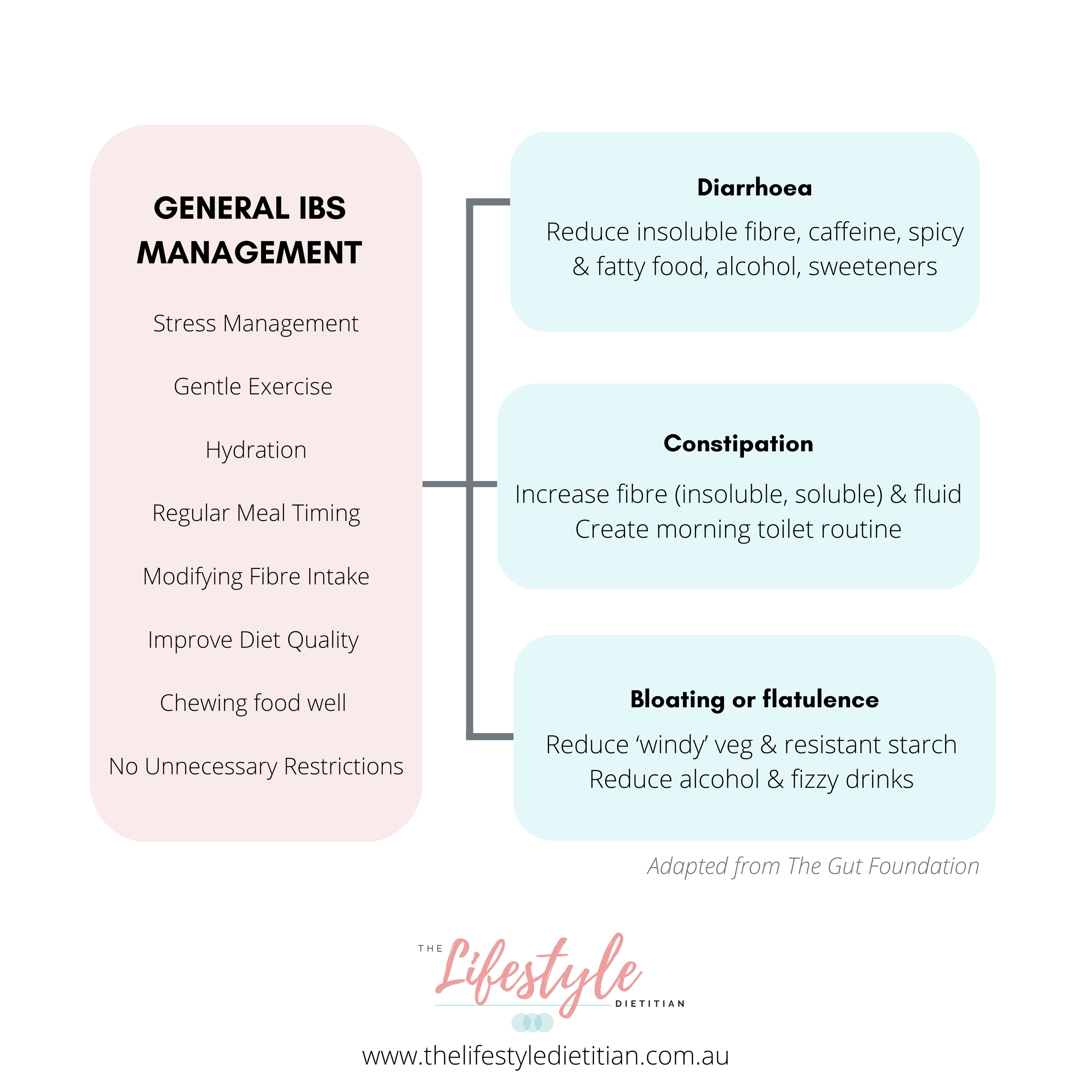The First Step To Managing Irritable Bowel Syndrome (IBS)
In the weird and wonderful world of gut health, Irritable Bowel Syndrome (IBS) is often a condition that gets the spotlight. But what separates the odd bout of gas and cramping from full-blown IBS?
Read on to learn more about what IBS is, how symptoms arise, and the first steps to getting your symptoms under control.
What is IBS?
IBS is a condition that affects the function of the gut in 5-10% of adults and can cause cramping, abdominal pain, bloating, gas, diarrhoea, urgency to pass a bowel movement and constipation. We don’t know what causes IBS, but do know what it is correlated with:
· Muscles in the intestines contracting more or less strongly than usual
· Differences in how people perceive normal muscle contractions and stretching of the bowel
· Stress and anxiety
· Food intolerance
· Changes in the bacteria normally present in the gut
As uncomfortable as IBS symptoms can be, the good news is that it doesn’t cause physical damage to your gut. Phew! To learn more about which foods contribute to IBS symptoms and how click here for a short video.
There is so much information available on how to manage IBS that sometimes this can be more overwhelming than helpful. Working with a Dietitian can help you navigate this information, and identify your triggers in a stepwise way, without compromising your health. Part of this journey may involve keeping a food and symptom diary to help you and your Dietitian explore the interplay between food, mood and your symptoms.
For some people, reducing common IBS triggers can help them significantly improve their symptoms without cutting any foods out! Your Dietitian will walk you through which common IBS triggers are worth reducing, based on your symptoms. Medications or supplements may also be recommended by your GP or Dietitian to help with symptom management. See the flowchart below for some general IBS management strategies to get you started.
If you have tried the general IBS management strategies consistently for some time and have not noticed improvements in your symptoms, your Dietitian may investigate further using a low FODMAP diet. Book an appointment with one of our experienced dietitians today.













